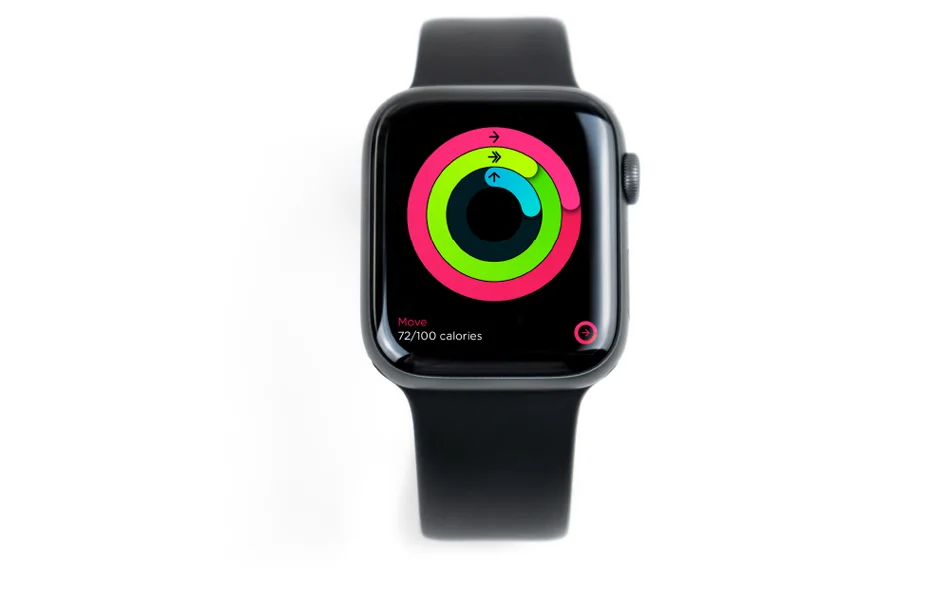Words by Isabel O’Brien
The first smart watch was unveiled in Austria in 1777: a gadget that was wound by the motion of its wearer’s steps. A week of good timekeeping could be achieved with a 15-minute walk; the watchmaker took a goal and simplified how it was reached. In the modern age, innovation operates with identical objectives, but when it comes to health technology, it is not yet the pharmaceutical industry driving advancement.
Leading this growth are large technology companies, who have lurched into the healthcare sphere in the last decade, onboarding experts from the pharmaceutical field to equip their innovations with clinical insight and integrity. Smart watches sparked the beginning of this trend, with Apple’s offering now having the capability to notify a wearer of high, low, or irregular heart patterns: a feature that can help detect, as well as assist the management of, atrial fibrillation.
“Whilst highly contested by some cardiologists in producing ‘noise’, I do believe that the Apple Watch ECG, as well as their foray into clinical trial recruitment, will continue bridging the biology and technology worlds,” says Eugene Borukhovich, Former Global Head, Bayer G4A, and Founding Board Member, YourCoach. Health.
In the 18th century, a self-winding mechanism may have been the peak of innovation, but in 2020, smart watches could have the potential to identify medical conditions and reduce unforeseen complications. Still, what proportion of us would trust a smart watch with our lives? And what does this say about consumer attitudes towards tech giants bridging this gap and moving into healthcare?
“The psychology of change in health tech will be driven by a combination of fear and wonder,” says John Nosta, President, NostaLab and Strategic Advisor, Google Health Advisory Board. “But the underlying psychology will be the same as we’ve seen with other disruptive tech innovations: from discovery and utility of fire, to the aeroplane, to the driverless car… technological innovations will be met with reluctance.”
A survey by Rock Health has found this scepticism could be linked to big tech giants developing health tech: only 11% of participants said they would be comfortable handing over their health data to a technology company, whereas 20% said they would give it to a pharma organisation. Whilst it isn’t necessarily a blockade against tech companies’ innovations – only recently Amazon was granted access to NHS website information to improve their Alexa’s at-home diagnoses – it does indicate a consumer bias against them. Despite the well-documented lack of trust in the pharma industry amongst the general public, consumers would still prefer to place their health in pharma’s hands.
So far, this has been actioned through the opening of in-house innovation labs, like Bayer G4A, and collaborations with tech firms to develop devices for specific disease areas; however, rapid expansion of both tactics will be needed to ensure sustainable growth in the future.
“It is expected that a significant share of the development and patient management investments – 2–4% in the range of $5–6 billion – will be diverted towards partnerships with reliable DTx companies over the next 5 years in the industry,” says Dr Amol Jadhav, Industry Consultant, Transformational Health, Frost & Sullivan.
Far from merely supplying consumer demand, a swift manoeuvre into developing health tech could become a financial imperative, as pharma investors’ emphasis may shift to these collaborations over traditional, cure-orientated R&D.
In terms of how this transition could be balanced, Jadhav continues: “Pharma will generate revenue based on the outcomes of a bundle of digital therapies, medicines, and services with a closer connection to both providers and patients.”
The digital therapies in these bundles would be ‘medical grade’ devices. These would range in capabilities from simple reminder or gamification tools, which would tackle non-adherence, to cognitive behavioural therapy or even virtual reality, which could simulate situations to help people with psychological conditions overcome real life anxieties.
Whilst health tech is not set to drive pharma out of business, it is essential that the industry incorporates it into future strategies and competes with digital disruptors for their own preservation. But more importantly, whilst curing diseases is the goal, technological innovation can streamline the process, so why doesn’t pharma assume the role of the innovative watchmaker and ease disease management for patients?









